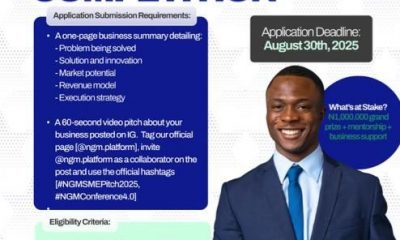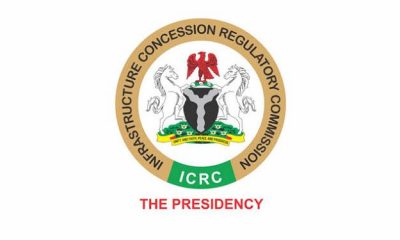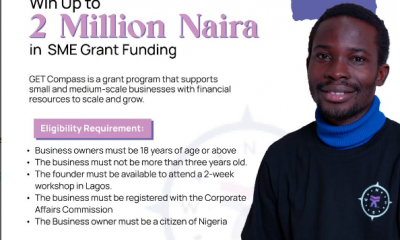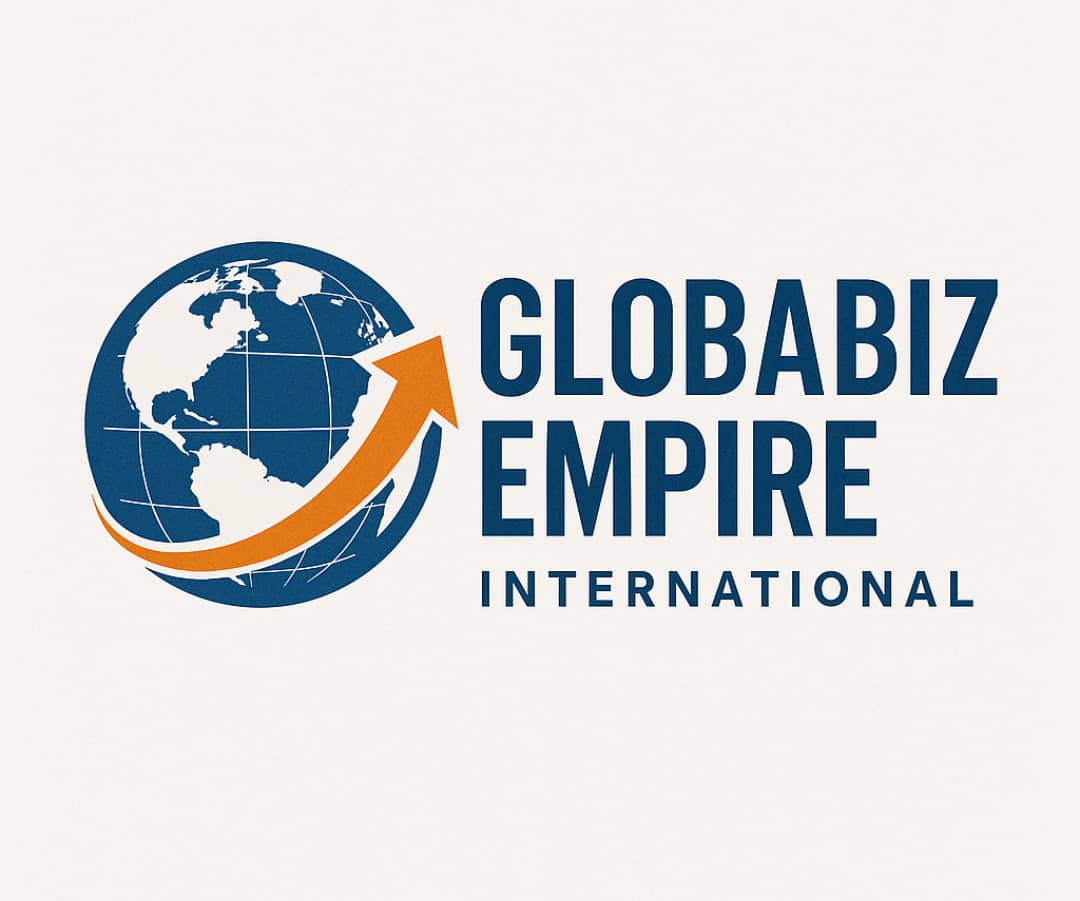business
NASME Calls for Greater Government Support Amid Rising Inflation Pressure on SMEs

NASME Calls for Urgent Government Action as Inflation Threatens Survival of Nigerian SMEs
The Nigeria Association of Small and Medium Enterprises (NASME) has called on both federal and state governments to intensify support for small businesses grappling with inflation, rising production costs, and weakened consumer demand—pressures that are pushing many enterprises to the brink.
During a general meeting held in Warri, Delta State, NASME Delta Chairperson, Lady Judith Nwachukwu, acknowledged ongoing government reforms but emphasized the urgent need for more targeted, transparent, and easily accessible interventions, especially for grassroots entrepreneurs.
“SMEs form the backbone of our economy, yet many are in crisis,” Nwachukwu stated. “With skyrocketing raw material costs and reduced consumer purchasing power, it’s becoming increasingly difficult for small businesses not just to grow, but to survive.”
She applauded the Tinubu administration’s recognition of SMEs’ importance in national development, particularly through policies like tax incentives, local content support under the ‘Nigeria First’ initiative, and efforts to expand access to finance. However, she stressed that these policies must go beyond paper promises and deliver real impact at the community level.
According to Nwachukwu, current financing structures remain too rigid and favor larger, more formal enterprises. “Intervention funds must be truly inclusive,” she said. “The eligibility criteria often replicate commercial banking standards, which exclude most informal and micro-scale entrepreneurs.”
She also cited economic policy shifts—such as fuel subsidy removal, exchange rate unification, and persistent insecurity in agricultural zones—as factors compounding inflationary pressures on small businesses. These challenges, she warned, are eroding the sector’s already limited capacity to absorb shocks.
To reverse the decline, NASME is calling for stronger collaboration between government and private sector actors to ensure SMEs play a central role in the Renewed Hope Agenda. “Our members are eager to contribute, create jobs, and grow the economy,” Nwachukwu added, “but they need practical, grassroots-oriented support.”
NASME commended the Delta State Government’s approval of a ₦1 billion revolving loan fund for MSMEs—administered by the Bank of Industry (BoI) at single-digit interest rates—as a step in the right direction. Nwachukwu emphasized that timely and transparent disbursement will be key to the initiative’s success.
She also thanked BoI for recently approving loans for several NASME Delta members and encouraged the bank to maintain swift disbursement processes.
A key moment during the meeting was the unveiling of the NASME Delta Multipurpose Cooperative Society, designed to enhance financial resilience among members. The cooperative will be led by NASME’s Public Relations Officer, Sir Hilary Ikem.
As economic headwinds persist, NASME’s message is clear: Nigeria’s path to economic recovery must begin with inclusive, actionable support for its small businesses—not just reforms, but real empowerment from the ground up.
business
Discover Life-Changing Digital Products You Can Buy on Selar Today

In today’s fast-paced world, knowledge truly is power. The people who thrive are those who continuously invest in themselves. Whether you want to learn a new skill, start a side hustle, improve your finances, or build a healthier lifestyle, the right digital product can open doors to opportunities you never imagined.
That’s why millions of smart people across Africa and beyond are choosing Selar—one of the largest digital product marketplaces. From ebooks, online courses, masterclasses, templates, business blueprints, and more, Selar gives you access to tools that can transform your life.
Why You Should Invest in Digital Products
-
Instant Access – No waiting, no shipping delays. Get your product immediately and start applying what you learn today.
-
Affordable Learning – Instead of wasting years figuring things out, you can gain insights directly from experts who have already succeeded.
-
Proven Results – Every product is created by professionals with strategies and methods that have worked for them—and will work for you too.
-
Lifetime Value – Buy once and keep coming back. You can re-learn, refresh, and apply the knowledge whenever you need it.
Who Needs These Digital Products?
These products are designed for:
-
Business owners who want to increase sales, attract more customers, and scale their operations.
-
Students and young professionals looking to master in-demand skills like digital marketing, UI/UX design, forex trading, or freelancing.
-
Entrepreneurs eager to discover profitable side hustle opportunities.
-
Anyone who wants to grow in health, wealth, and personal development.
How to Get Started on Selar
-
Choose a Product – Below is a carefully selected list of high-value digital products that have helped thousands of people.
-
Click the Link – Each product includes a direct link to purchase securely via Selar.
-
Start Learning & Applying – You’ll gain instant access so you can begin your journey right away.
Recommended Digital Products You Can Buy Today
Here are some of the top digital products available now:
-
Digital Marketing Made Simple
Get it on Selar -
Affiliate Marketing Simplified
Get it on Selar -
Rare Easiest Affiliate Marketing Blueprint (REAMB)
Get it on Selar -
The Top Level Video Editing Masterclass
Get it on Selar -
Crypto Profit Kit
Get it on Selar -
Beginners & Advanced Crypto Training
Get it on Selar -
Mini Beginners’ Course on Cryptocurrency Investment
Get it on Selar -
Online IELTS Training Pro Edition (2022–)
Get it on Selar -
Ghostwriting Income Generator
Get it on Selar -
Ghostwriting Income Network
Get it on Selar -
Ghostwriting Money Magnet (GMM)
Get it on Selar -
7-Figure Meta Ads Academy
Get it on Selar -
Simplified Online Survey Guide (Get Paid in Pounds)
Get it on Selar -
Affiliate of Affiliate Marketing Sales Secret (AMSS)
Get it on Selar -
Life of Options Program (LOOP)
Get it on Selar -
Profitable Freelancing Academy
Get it on Selar -
Mobile Videography Course: Create Quality Videos with Your Phone
Get it on Selar -
Trade Like TonySnip3r
Get it on Selar
Final Thoughts
Investing in the right digital products can change your life, career, and finances. Instead of spending years figuring things out on your own, you can leverage the wisdom of experts and start seeing results faster.
Don’t wait—take action today. Each product listed above is designed to equip you with skills, knowledge, and opportunities that will continue to pay off for years to come.
business
Discover Life-Changing Digital Products You Can Buy Today on Selar

In today’s world, knowledge is power—and the people who succeed are those who invest in themselves. Whether it’s learning a new skill, starting a side hustle, improving your finances, or building a healthier lifestyle, the right digital product can open doors to opportunities you never imagined.
That’s why millions of smart people across Africa and beyond are turning to Selar, one of the biggest marketplaces for digital products—from ebooks, online courses, masterclasses, templates, to business blueprints and more.
Why You Need These Digital Products
- Instant Access – No waiting, no shipping. Buy now and start learning or applying immediately.
- Affordable Investment – Instead of spending years figuring things out, you can learn from experts who’ve already succeeded.
- Proven Results – These products are created by professionals who have tested strategies and methods that actually work.
- Lifetime Value – Once you purchase, you can always come back, re-learn, and apply the knowledge again and again.
Who Can Benefit from These Products?
- Business owners who want to grow sales, attract more customers, and scale faster.
- Students and young professionals looking to learn in-demand skills like digital marketing, UI/UX, forex, or freelancing.
- Entrepreneurs searching for side hustle opportunities to increase income.
- Anyone who wants to improve in health, wealth, and personal development.
How to Get Started
- Choose a Product Below – I have carefully selected high-value digital products that have helped thousands of people.
- Click the Link – Each product has a direct link to purchase securely through Selar.
- Start Learning & Applying – You’ll receive instant access so you can begin right away.
Recommended Digital Products You Should Buy Today
(This is where you will list your affiliate product links with a short description for each, for example:)
- Digital Marketing made Simple
https://selar.com/p/19b4zi?affiliate=8fpr
- Affiliate Marketing Simplified
https://selar.com/p/323311?affiliate=emzc
- Rare Easiest Affiliate Marketing Blueprint (REAMB)
https://selar.com/p/1482w7?affiliate=n3bz
- The Top Level Video Editing Masterclass
https://selar.com/p/8yi8?affiliate=9agp
- Crypto Profit Kit
https://selar.com/p/ejtf?affiliate=kjn7
- Beginners and Advanced Crypto
http://Womenincrypto.selar.com/oqgd?affiliate=9cjc
- Mini Beginners Course to Invest in Crypto Currency
https://selar.com/p/jsn1?affiliate=8lyn
- Online IELTS Training PRO Edition (2022-)
https://selar.com/p/9v47?affiliate=rodi
- Ghostwriting Income Generator
http://dangig.selar.com/qelh?affiliate=gxd5
- Ghostwriting Income Network
http://coachannieg.selar.com/1m51b8468h?affiliate=mivc
- Ghostwriting Money Magnet(GMM)
http://olaleregmm.selar.com/g84813?affiliate=3646
- 7 Figure Meta Ads Academy
https://selar.com/p/6h15b7?affiliate=ccze
- Simplified Online Survey Guide (GET PAY IN POUNDS)
https://selar.com/p/7210p5?affiliate=mwt8
- Affiliate of Affiliate Marketing Sales Secret (AMSS)
http://victornathel.selar.com/k4gk?affiliate=iqxg
- Life Of Options Program (LOOP)
https://selar.com/p/yotn?affiliate=co2u
- Profitable Freelancing Academy
https://selar.com/p/4163r7?affiliate=s8ba
- Mobile Videography Course: Learn How to Create Quality Videos with your Phone
https://selar.com/p/k7xi?affiliate=tpwp
- Trade Like TONYSNIP3R
https://selar.com/p/i02p3k?affiliate=s25x
Final Thoughts
Investing in the right digital products can transform your life, career, and finances. Instead of wasting years trying to figure things out, you can leverage the experience of experts and start seeing results immediately.
Take action today by choosing from the products above. Each one is designed to equip you with skills, knowledge, and opportunities that will pay off for years to come.
business
We are Hiring: Social Media Growth Ambassadors (2 Positions)

Remote | Part-Time or Flexible Hours
Are you active on social media and passionate about business, jobs, and opportunities?
Do you know how to attract attention, spark engagement, and drive traffic online?
Then this opportunity is for you!
Role Overview:
We are looking for 2 dynamic individuals to serve as Social Media Growth Ambassadors for GlobabizEmpire.com — a trusted online platform for global jobs, business insights, and income opportunities.
Key Responsibilities:
-
Promote GlobabizEmpire.com consistently on Facebook, Instagram, WhatsApp, TikTok, or X
-
Share daily job updates, business news, and smart money tips from the website
-
Drive website traffic using content, trends, reels, and referral links
-
Respond to DMs/comments and convert viewers into website visitors
-
Provide weekly reports on reach, impressions, and traffic performance
What You’ll Need:
-
A strong presence on social media (min. 2,500 followers on at least one platform)
-
Great communication skills and social media creativity
-
Consistency and accountability
-
Passion for helping people grow their careers or income
What You’ll Get:
-
Monthly stipend + performance-based bonus
-
Opportunity to grow your personal brand with us
-
Free digital training + content materials
-
Certificate of Digital Advocacy (upon successful campaign)
How to Apply:
Send us a message with:
-
Your full name
-
Link to your active social media profiles
-
Short message on why you are the perfect fit
-
Screenshot of your past engaging post (if available)
Email: [email protected]
WhatsApp: +234 8153507382
Deadline: August 22, 2025
-

 jobs9 months ago
jobs9 months agoEnvironmental Health & Safety (EHS) Specialist – Oando Plc
-

 business7 months ago
business7 months agoSEC Director-General to Headline Comercio Partners’ Forum on Global Trade and Innovation Trends
-

 news7 months ago
news7 months agoPitch to Win ₦1M! Apply Now for SME Competition 4.0
-

 news7 months ago
news7 months agoApply Now: Pivot Challenge 2025 – Up to ₦50 Million Grant & Business Support for Young Nigerian Entrepreneurs
-

 news7 months ago
news7 months agoApply Now: 2025 NNPC/SNEPCo Scholarship Worth ₦250,000
-

 news7 months ago
news7 months agoApply Now: Grooming Centre ₦20M Grants for Nigerian Undergraduates & Postgraduates
-

 business8 months ago
business8 months agoFG Approves Policy Allowing Ministries to Approve PPP Projects Under ₦20 Billion
-

 news7 months ago
news7 months agoApply Now: GET Compass Grant Program – Up to ₦150 Million for Nigerian MSMEs
